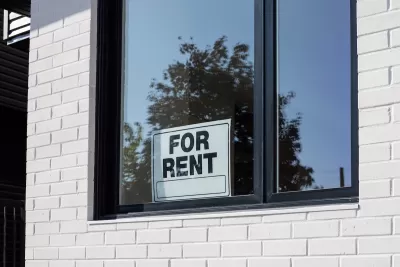Housing developers in the District say the industry is on the verge of collapse due to ballooning unpaid rent debts.

Washington, D.C. affordable housing developers are sounding the alarm as many of them face foreclosures and budget shortfalls. As Jon Banister explains in Bisnow, “The owners of tens of thousands of income-restricted apartments are at risk of losing their properties, jeopardizing the future of affordable housing in the nation's capital.”
Local developers say the entire industry is at risk of collapse. “More than 80% of housing properties that have received D.C. funding aren't bringing in enough rental income to pay their mortgages and maintenance costs, according to the District's Department of Housing and Community Development.”
“The scale of the crisis is viewed as existential: 22,000 units that house 48,000 vulnerable residents are at risk of foreclosure today, according to DHCD.” The District’s affordable housing developers currently face $12.7 million in rent delinquencies and blame pandemic-era policies for an extended eviction process.
District Council Member Robert White says “the industry has reached a ‘crisis point,’ and he is working to figure out what policy changes the council can make to help fix the issue and prevent more housing operators from shutting down. White is considering proposing changes to pandemic-era eviction policies and searching for more money to deploy to tenants who can’t pay rent.”
FULL STORY: ‘The Whole Industry Could Collapse’: D.C.'s Housing Providers Face An Existential Crisis

Alabama: Trump Terminates Settlements for Black Communities Harmed By Raw Sewage
Trump deemed the landmark civil rights agreement “illegal DEI and environmental justice policy.”

Planetizen Federal Action Tracker
A weekly monitor of how Trump’s orders and actions are impacting planners and planning in America.

Why Should We Subsidize Public Transportation?
Many public transit agencies face financial stress due to rising costs, declining fare revenue, and declining subsidies. Transit advocates must provide a strong business case for increasing public transit funding.

Understanding Road Diets
An explainer from Momentum highlights the advantages of reducing vehicle lanes in favor of more bike, transit, and pedestrian infrastructure.

New California Law Regulates Warehouse Pollution
A new law tightens building and emissions regulations for large distribution warehouses to mitigate air pollution and traffic in surrounding communities.

Phoenix Announces Opening Date for Light Rail Extension
The South Central extension will connect South Phoenix to downtown and other major hubs starting on June 7.
Urban Design for Planners 1: Software Tools
This six-course series explores essential urban design concepts using open source software and equips planners with the tools they need to participate fully in the urban design process.
Planning for Universal Design
Learn the tools for implementing Universal Design in planning regulations.
Caltrans
Smith Gee Studio
Institute for Housing and Urban Development Studies (IHS)
City of Grandview
Harvard GSD Executive Education
Toledo-Lucas County Plan Commissions
Salt Lake City
NYU Wagner Graduate School of Public Service





























